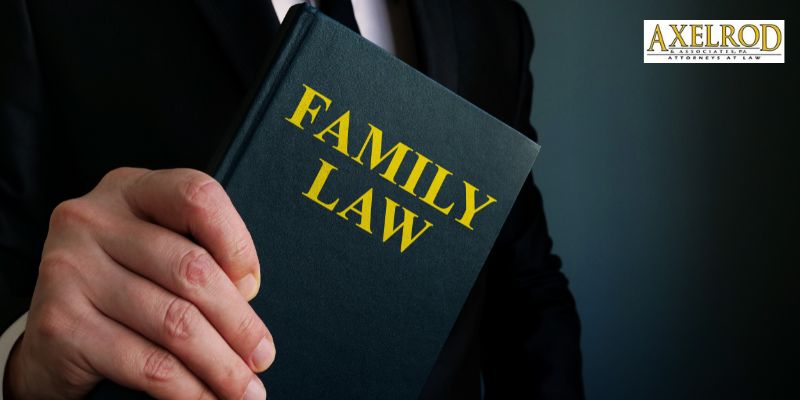4701 Oleander Drive, Suite A
Myrtle Beach, SC 29577
4701 Oleander Drive, Suite A
Myrtle Beach, SC 29577
Loris Family Lawyer
Loris Family Law Attorney
For many people, their family is the most important thing in their life. Family law cases can be exceptionally stressful for many reasons, and one of these is how much they can affect your family. A family law case involves high emotions, which can easily turn contentious. You may be going through a divorce, which includes many family law issues such as property division and child custody determinations. You may also be going through a case outside of a divorce, including determining child support, modifying a court order, or petitioning for a protective order. No matter what your family law case is, you can protect your rights and your family’s interests by working with a dedicated family law attorney.

Axelrod & Associates: Your Loris Family Lawyers
Axelrod & Associates knows how hard these cases can be on your family. Our family law attorneys can understand the unique needs of your family, guide you through legal requirements, and represent you in mediation or litigation. At Axelrod & Associates, we can help you learn how the law affects your family so you can make informed choices about your future for a divorce, separation, or other case. Our team has over 100 years of experience in several areas of law, and we know how different each family’s legal challenges and needs are. We use our experience to navigate your family law case, advocate for you, and ensure that you understand all the legal routes you can take. Our attorneys always provide you with honest advice and aim for the least stressful and least expensive option whenever possible.
Common Family Law Cases in Loris
Family law cases may be related to a divorce case, or they may be handled independently. The most common family law cases include:
Divorce
Many couples make the difficult decision to get a divorce, often for the benefit of themselves and their family. This does not make the divorce easy, however, and the divorce process can be lengthy and stressful. If you and your spouse are able to agree on important aspects of the divorce and negotiate, you may be able to use divorce mediation to resolve the separation more quickly. An attorney can help you negotiate the terms of a separation agreement. If you and your spouse cannot reach an agreement, an attorney can represent you in court.
Child Custody and Child Support
When the court makes any decision in family law cases involving children, they always base those choices on the child’s interest. If you and your co-parent are able to mediate a parenting plan or child support determination, the court will review the plan to ensure that it is in the child’s interests. The court prefers children to spend time with both parents. Unless this assumption is disproven, the court will likely only allow a parenting plan that allows significant time with both parents. Both parents are required to provide financial support for their children.
Spousal Support
Spousal support is not a part of every divorce, but it may be necessary to provide a lower-earning spouse with financial stability following a divorce. The goal of spousal support is to ensure that both spouses can maintain a similar standard of living, particularly if one spouse gave up career or educational opportunities to support the marriage.
Property Division
During a divorce or separation, parties must split their marital assets. If parties have a prenuptial agreement, or can negotiate the division of property outside of court, they can decide how the property is split. However, if couples cannot negotiate the division of property, the court will divide assets according to equitable distribution laws. The court will review several factors about the marriage to determine an equitable split of the marital property.
FAQs
Q: What Is Considered an Unfit Parent in South Carolina?
A: An unfit parent is a legal term that refers to more than simply bad parenting. An unfit parent, in the eyes of the South Carolina courts, is a parent who is unable to care for their child’s basic physical and emotional needs or provide them with safety and shelter. If the court sees proof that a parent is either threatening a child’s physical or mental well-being, or failing to keep a child safe, the court will likely deem that parent unfit. Proof of child abuse or a continued drug abuse disorder may deem a parent unfit for custody.
Q: At What Age Can a Child Refuse Visitation in South Carolina?
A: Under South Carolina law, a child can only actively choose where they live once they are 18 and no longer a legal child. Prior to then, the court may consider a child’s wishes when determining custody, especially if the child shows sufficient maturity in those wishes. However, the court is never required to follow what the child wishes and will always primarily operate based on the child’s interests. Each year the child is closer to being 18, the more likely it is that the court will take their wishes into account when modifying or determining custody arrangements.
Q: What Is the Most Common Custody Arrangement in South Carolina?
A: One of the most common custody arrangements in South Carolina is joint legal custody and sole physical custody, with the noncustodial parent having significant visitation rights. Legal custody refers to a parent’s ability to make important choices for their child, such as their healthcare facility or where they go to school. Physical custody refers to where the child primarily lives. The court always chooses a parenting plan that is in the child’s interests. The court believes it is in a child’s interests to spend significant and meaningful time with both their parents, but joint legal and physical custody is not always possible.
Q: How Can a Mother Get Full Custody in South Carolina?
A: To get sole physical and legal custody as a parent in South Carolina, you have to prove to the court that it is in your child’s interests. This may be done by showing how you can provide for their safety and well-being or by demonstrating how the other parent is unable to care for the child or is an unfit parent. A parent may be considered unfit for actions like recklessness, abuse, neglect, and/or an inability to care for a child’s basic needs and safety.
Contact Axelrod & Associates
Axelrod & Associates can help you through a stressful family law case. Contact our team today to see how our well-prepared and experienced attorneys can effectively resolve your case.
Need help? Contact Axelrod & Associates, P.A.

Request your
Consultation
The fields marked with * are mandatory.






